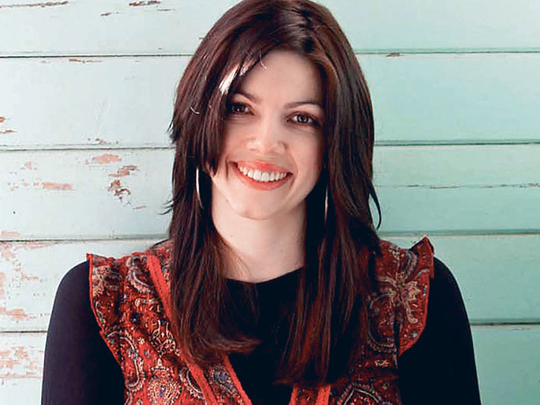
Ancient houses witness a lot; sadness, happiness, romance, joy and maybe even sometimes murder. This is something that's always fascinated Kate Morton — to such an extent, that her latest novel The Distant Hours was born.
"I love to visit old houses, where other people lived and suffered and had joy. I like to think if I turned around quickly enough, I would get an imprint of them; I find it eternally fascinating," the Australian author told Weekend Review via tele-phone from London.
She continued that this is one of the reasons that she loves England's capital so much — because of all the buildings with such an extensive past.
Morton is very much a fan of Gothic fiction and wrote her Masters' thesis on tragedy in the Victorian novel.
This adoration is evident in her portrayal of the three Blythe sisters Juniper, Seraphina (Saffy) and Persephone (Percy), the latter two of which are the older twins. Morton is also the oldest of three sisters, and spent her childhood "inventing and playing games of make-believe" with them.
Living in the crumbling Milderhurst Castle, it's up to Edie Burchill to discover the secrets of its past.
Original book
In fact, it was the sisters' Blythe in Morton's head that actually changed the plot of her original book.
"I had a deadline and I kept writing, but I was 60,000 words in and the sisters Blythe were in my head talking to me. The castle seemed real and I thought it could be the next book," she said.
However, the other voices grew, she started writing another draft and in one night she wrote the first chapter of what was to become The Distant Hours. After starting one book, she ended up writing another.
"The Distant Hours," she wrote in the novel, "started as a single idea about a set of sisters in a castle on a hill".
As a mother of two young boys, Morton said she didn't have the luxury of working all day, but that she "wrote whenever I could. It meant that time was a little shorter than I usually have, but it was an intensive process."
In the novel, she thanks her friends and family, for letting her "escape to Milderhurst Castle, and for putting up with me when I stumbled back down the hill, dazed, distracted and sometimes even a tad displaced".
This, Morton said, is a metaphor for letting her escape. "I did feel like I took time away from my family. It's every working mother's juggling act, the work/life balance. I was very aware that I was at Milderhurst Castle, when my real little people were at the office door. They both require love and attention: this is shared with every working parent out there," she said.
The author's research took her and her family to London for three months. She toured a disused Underground station and also took a Blitz tour of the capital, to see the "real, lived history that's still around us".
"I loved doing that," she said of her significant research, "it doesn't feel like research. I visited a lot of places".
Morton's books are published in 36 countries. The House at Riverton was a Sunday Times number one bestseller in the UK in 2007 and a New York Times bestseller in 2008.
The Shifting Fog (alternative title) won General Fiction Book of the Year at the 2007 Australian Book Industry Awards, and The House at Riverton was nominated for Most Popular Book at the British Book Awards in 2008.
Her second book, The Forgotten Garden was a number one bestseller in Australia and a Sunday Times number one bestseller in the UK in 2008. It won General Fiction Book of the Year at the 2009 Australian Book Industry Awards and was an Amazon Best of the Month pick and a New York Times bestseller in 2009.
She said of The Distant Hours: "I think it differs, but there are similarities. I love books that tether the past to the present, secrets and all that sort of thing. It's different because with The Distant Hours I embraced my love of all things Gothic, even more than I had before."
The 670-page opus is quite physically weighty. This is something that Morton has a problem with — almost an inability to write a shorter book.
"This sounds awful — I hoped I'd be able to write a shorter book, but no matter how much I wanted, I don't seem to be able to do it. I like to live inside the story of the book; I find that I want to describe the way the room makes the person feel, even with quite minor characters," she said.
Lo and behold, it came out the same length as her previous two books, she laughed.








